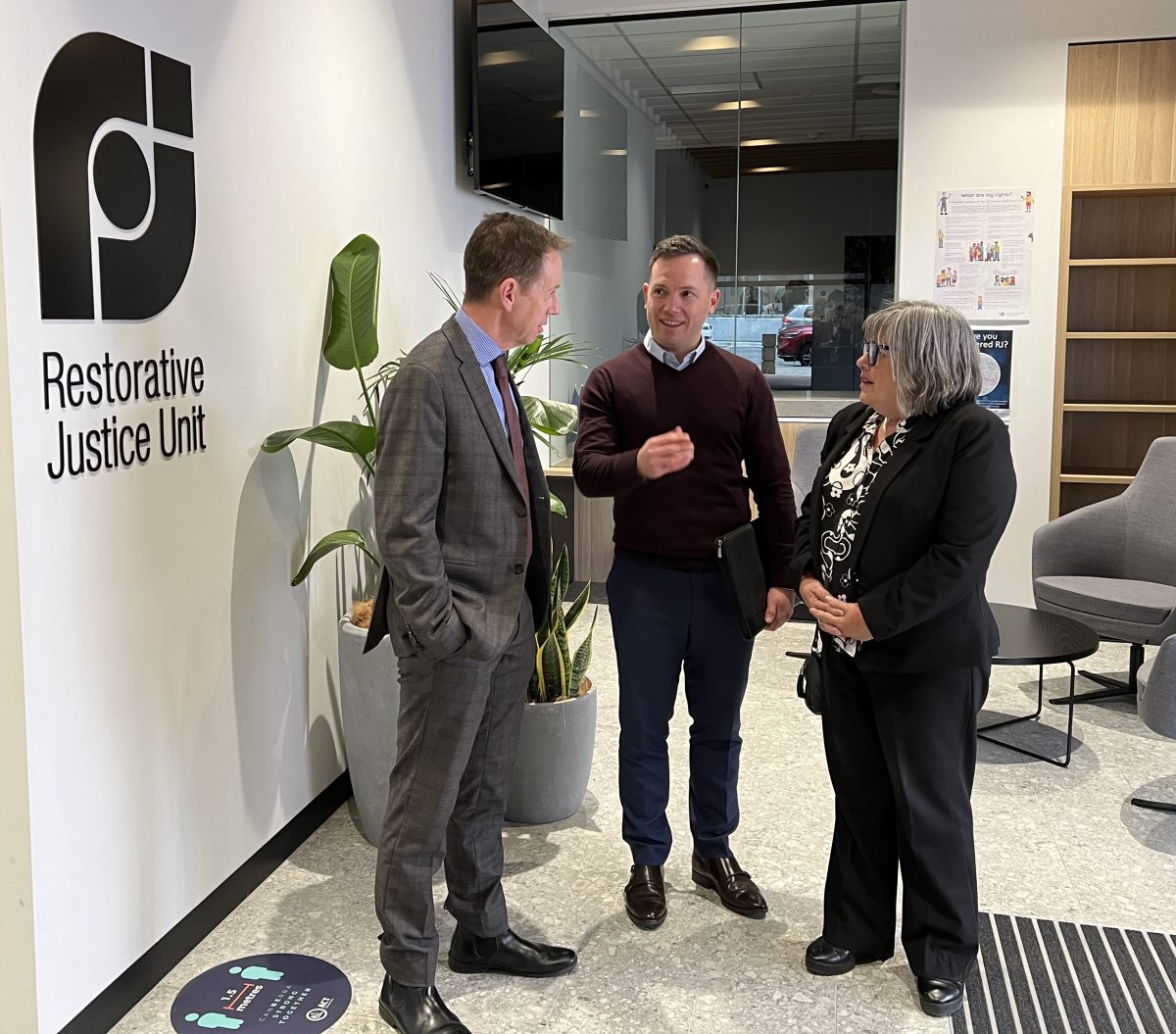
Attorney-General Shane Rattenbury, JACS Restorative Justice Unit senior director Richard Dening and Acting Victims of Crime Commissioner Margie Rowe are looking to expand the ACT’s restorative justice process. Photo: Supplied.
The option for victim-survivors of sexual violence to seek civil justice is being considered as part of new research in the restorative justice space.
Additional funding to the tune of $630,000 over two years has been allocated from the Confiscated Assets Trust (CAT) and the 2024-25 ACT Budget as part of measures to increase access to restorative justice processes in the ACT.
Attorney-General Shane Rattenbury said there had been an increase in demand for the service and the complexity of cases, especially since the process was opened up to domestic family violence and sexual assault offences in 2018.
“This work is incredibly powerful in terms of giving victim-survivors a better sense of getting through the justice system and providing an alternative to the traditional criminal justice approach,” he said.
“What [victim-survivors] often say is, ‘I want my perpetrator to understand the impact [their offending] has had on me; I want them to think about how they’re going to change their behaviour in the future’.
“The criminal space doesn’t always offer that response.”
The one year of CAT funding is for one additional restorative justice convenor, while the ACT Budget money (over two years) will be used to hire another convenor as well as an administrative support officer.
It’s hoped this will cut down on the wait times currently being experienced by the system, which Acting Victims of Crime Commissioner Margie Rowe said was extremely important.
“Delay is a very significant feature of the traditional system and one that weighs heavily on victim-survivors,” she said.
A recent Australian Institute of Criminology evaluation of the ACT’s restorative justice system found it was meeting the needs of victim-survivors that were difficult to achieve in other parts of the criminal justice system, including feelings of safety, being heard and giving a sense of control.
Some victim-survivors stated taking part in the process was an “integral part of their recovery journey”, while others found it helped heal relationships.
The ACT Government has also appointed RMIT University’s Centre for Innovative Justice to conduct two pieces of work in this space, in addition to the above funding.
The Centre for Innovative Justice will undertake the first comprehensive review of the scheme since its introduction 20 years ago (including a review of the ACT’s Restorative Justice Scheme and Crimes (Restorative Justice) Act 2004).
It will also research how restorative justice could be expanded, including alternative civil justice options for victim-survivors of sexual violence, which was recommendation 13 of the Listen. Take action to prevent, believe and heal report.
Ms Rowe said a civil option could help victim-survivors feel they had more “dignity and agency” in the process as they are witnesses (rather than parties) in criminal cases.
“The victim-survivors rightly feel this [should] be about them and their experience,” she said.
The review and research will be finalised later this year.





















